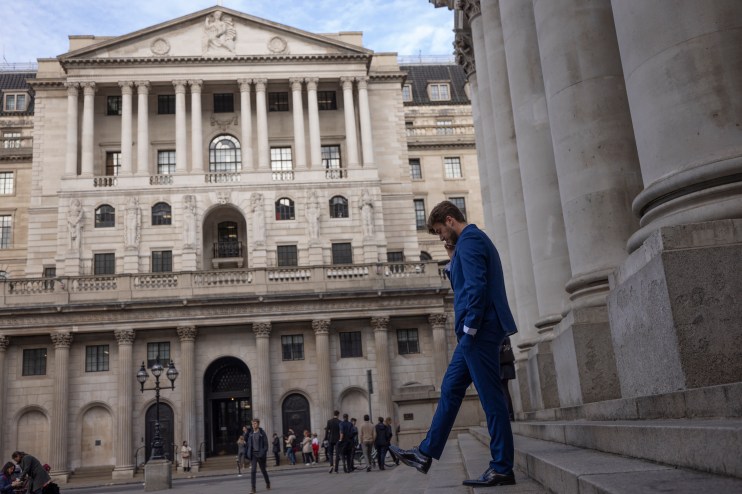Friday 14 November 2025 5:52 am
| Updated:
Thursday 13 November 2025 3:36 pm
Share

Six-figure earners are now Britain’s invisible middle class, but they’re an afterthought when it comes to banks, writes Ziad Mabsout
Six-figure earners are meant to be the financial success stories of modern Britain. They’re Britain’s invisible middle class: they work long-hours, pay heavy taxes and they’re told they’re doing well. But for the increasing number of professionals earning around £100,000 and above, the options for growing that wealth remain remarkably narrow. They are too affluent for retail investment apps, too “mass market” for private banks and often too busy to navigate opaque wealth products designed for the already rich.
This cohort, sometimes dubbed HENRYs (High Earners, not Rich Yet), will be the next major wealth holders, but they’re not being treated that way. The industry still operates as if wealth is defined by a seven-figure portfolio and a private banker’s card. But today’s high earners expect something different: digital access, transparency and a chance to invest in the kind of opportunities once reserved for institutions.
The new middle of wealth
In the UK, there are now more than 1.35m earning over £100,000. These are doctors, consultants, lawyers, tech professionals and entrepreneurs earning six-figures but locked out of the exclusive world of private markets. Despite healthy incomes, they find themselves boxed into retail funds, ISAs or buy-to-let properties, even as inflation erodes real returns and property markets stagnate.
Meanwhile, private equity, venture capital and institutional-grade real estate – the asset classes that have driven much of the ultra-rich’s outperformance over the past two decades – remain largely off limits. High minimums, convoluted structures and old-fashioned gatekeeping mean that the middle of the tier of wealth continues to miss out on the most dynamic parts of the investment landscape.
This mismatch is not sustainable. Over the next 20 years, an estimated £5.5-7 trillion will change hands in the UK alone as baby boomers pass wealth to younger generations. Globally, that figure exceeds $124 trillion. The biggest wealth transfer in history is underway, and the recipients are not interested in sitting politely in front of a mahogany desk to discuss bond yields.
The Great Wealth Transfer is reshaping expectations
Millennials and Gen Xers, who are beginning to inherit or accumulate serious wealth, are digital natives. They already manage their day-to-day finances via mobile apps. They expect investment tools to be just as easy and transparent.
They also think differently about risk and diversification. In the Middle East, where $1 trillion generational wealth transfer is expected by 2030, younger investors are actively shifting family portfolios toward technology, venture and digital assets.
These investors are pragmatic. They’re looking for long-term, institutional quality investments, the kind of private opportunities that used to require millions to even be considered. Fintech is finally making that possible through fractionalisation: breaking large, illiquid assets into accessible digital units, lowering entry barriers and giving investors control and visibility.
Why access matters to the wider economy
If Britain’s financial system can’t adapt to meet these expectations, it risks losing a generation of investors. The danger isn’t that these professionals stop investing, but that they could move their capital offshore or into unproductive assets.
Unlocking access to private markets would help channel wealth into growth, supporting scale-ups, infrastructure, clean energy and innovation. It would also reduce the economy’s overreliance on property as the default investment choice. In that sense, the widening participation in private wealth goes beyond fairness, but is also an integral cog in economic strategy.
UK fintechs are beginning to challenge the status quo that private markets must remain the reserve of the ultra-rich. They’re also responding to what many high earners are asking for: an actual bespoke, personalised product. And it isn’t replacing the traditional advisors, it’s updating the archaic model. Technology can make institutional-grade investing more transparent and accessible. Regulation can be modernised to reflect how people actually build wealth today. And financial institutions can see six-figure earners not as second-tier clients, but as the backbone of the next investment cycle.
The next decade’s defining choice
The Great Wealth Transfer is happening, and Britain now faces a choice. We can keep wealth trapped in static assets, or unlock it into the productive economy, funding companies, technologies and the ideas that will define the next decade for the country. The institutions that manage wealth are built for another age. They’re slow, expensive and exclusive. They steer middle-class investors toward overvalued property or cautious funds while reserving private equity and venture deals for the ultra-rich.
That needs to change. A modern economy should reward work and enterprise with real access to growth, not just homeownership. If six-figure earners could channel even a fraction of their savings into productive capital, the impact on the wider economy would be enormous.
Some fintechs are trying to open these iron-clad doors through fractionalisation and digital access. But this shouldn’t be left entirely to startups. Regulators and institutions should recognise that the wealth landscape is shifting, and that the next generation of investors won’t accept systems built for their parents.
Britain talks endlessly about becoming a nation of investors. It could start by treating its high earners like the wealth builders they already are.
Ziad Mabsout is CEO of Vennre
Read more
UK must stop treating wealth as an offence
Similarly tagged content:
Sections
Categories
People & Organisations